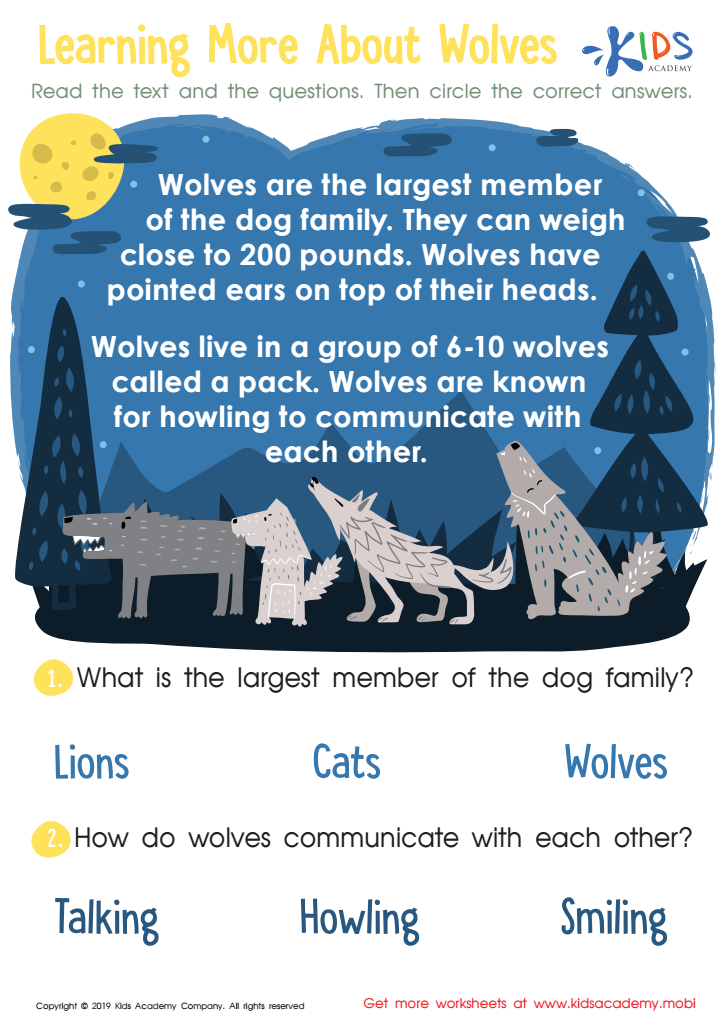Understanding wolves Worksheets for Kids
1 filtered results
-
From - To


Learning More About Wolves Worksheet
Question/Answer
How to train the Understanding wolves skill in Grade 1 students learning about Building Vocabulary?
To train the "Understanding Wolves" skill in Grade 1 students, begin by introducing simple vocabulary related to wolves, such as pack, howl, and den. Use engaging activities like storytelling, wolf-themed picture books, and interactive discussions to explain these terms.
How to test a Grade 1 student’s Understanding wolves skills?
To test a Grade 1 student's understanding of wolves, use simple, age-appropriate methods such as asking them to draw a wolf and describe its habitat, diet, and behavior in their own words.
How does the mastery of the Understanding wolves skill affect a student's performance at an early age?
Mastering the Understanding Wolves skill at an early age enhances a student's empathy, observational skills, and respect for nature. It can improve their ability to work in teams, mirroring the cooperative nature of wolf packs. This early exposure also stimulates curiosity about wildlife and ecosystems, fostering a broader interest in science and environmental conservation.

 Assign to the classroom
Assign to the classroom











